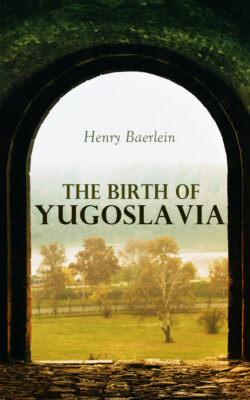Читать книгу The Birth of Yugoslavia - Henry Baerlein - Страница 21
На сайте Литреса книга снята с продажи.
EVIL DAYS AND THE PEOPLE'S HERO
ОглавлениеOn the death of Dušan his dominions fell apart, so that the conquering Turk, who now appeared, was only met with isolated resistance. At a battle on the river Maritza in 1371 the Christians were utterly routed and, among other chieftains, King Vukašin was slain. His territories had included Prizren in the north, Skoplje, where Dušan had been crowned, Ochrida and Prilep. It was Prilep, amid the bare mountains, which passed into the hands of Marko, the king's son, Marko Kraljević, and thereabouts are the remains of his churches and monasteries. But for the Serbs and the Bulgars Marko is associated with deeds of valour; he has become the protagonist of a grand cycle of heroic songs, wherein his wondrous exploits are recalled. Although he was, by force of circumstances, a Turkish vassal, and, fighting under them, he perished in Roumania in 1394, so that historically he may not have played a very helpful part, yet it is to him that numerous victories over the Turk are ascribed. He is said to have been engaged in combat against the three-headed Arab, to have waged solitary and triumphant warfare against battalions of Turks, to have passed swiftly on his faithful charger Šarac from one end of the country to another, to have defended the Cross against the Crescent, to have succoured the poor and the weak, to have conversed with the long-haired fairies, the "samovilas," of the forest lakes, who gave him their protection, and he is said to have assisted girls to marry by abolishing the Turkish restrictions. They say that he is still alive, and when he reappears, gloriously seated on Šarac, then will the people be free, at last, and united.[18] Through the long centuries of Turkish oppression he—who personifies many of the traits in the national character, with Christian and with pagan attributes—he, in these legends, many of which have a high poetic value, was able to keep alive the hope of deliverance. From one end of the Balkans to the other, from Varna to Triest, the popular hero is Marko Kraljević. He is as much the personage of Bulgarian as of Serbian folk-songs, and this is well, seeing that he was a Serbian prince while many of his adoring subjects were Bulgars—the noble Albanian chronicler, Musachi, for instance, calls his father Re di Bulgaria. As Marko is dear to them in song the Bulgars have come to think that he was a Bulgar; thereupon the Serbs point out that he was the son of Vukašin, that Marko is an admittedly Serbian name, and that Kralj (King) and Kraljević are titles so unknown in Bulgaria that when the Sofia newspapers alluded to Louis Philippe, Ferdinand's grandfather, they spoke of him—him of all people—as Tzar Louis Philippe. Thereupon the Bulgars retort that, anyhow, Marko was cruel and perfidious and a braggart and a drunkard and a fighter against Christians, and a fighter remarkable for cowardice. But if we are going to look at the private character of all the world's national heroes, we shall be the losers more than they. Let Marko, who joins the Serb and the Bulgar in song, find them engaged, when he comes back, in drinking together and not in making him the subject of antiquarian and acrimonious debate.
